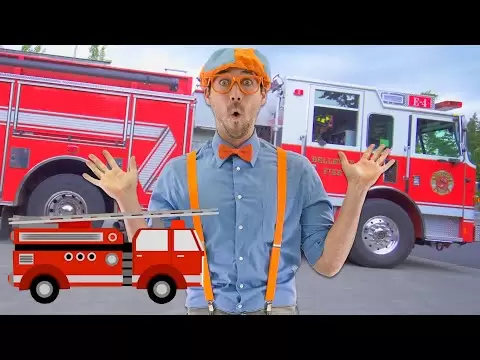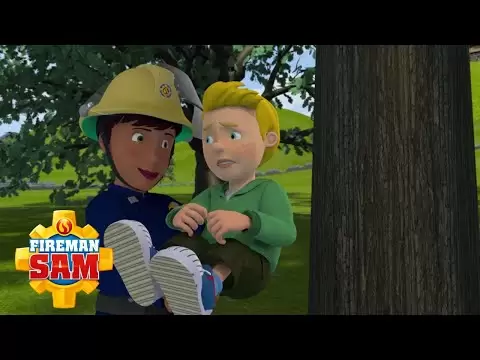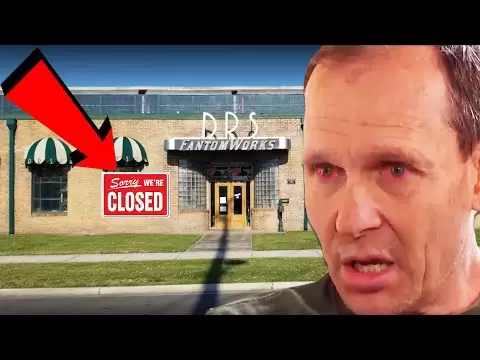YTread - Let's Read YouTube videos as Articles
NHL Game 3 Highlights | Bruins vs. Maple Leafs - April 24, 2024
NHL Game 3 Highlights Bruins vs Maple Leafs - April 24 2024 he has two of the four regular season goals for the lefs against San this season so underway...
Read MoreGm 3: Bruins @ Maple Leafs 4/24 | NHL Playoffs 2024
Gm 3 Bruins Maple Leafs 424 NHL Playoffs 2024 juice as they dominated the third tamarus wins the draw itll come midpoint Riley down low and a tip by...
Read MoreReggie Bush Gets 2005 Heisman Back, 14 Years After Having To Forfeit...
Reggie Bush Gets 2005 Heisman Back 14 Years After Having To Forfeit It Pat McAfee Reacts Reggie Bush yes ladies and gentlemen it has been decided that...
Read MoreWhy Shares of Meta Are Sinking After Earnings Report
Why Shares of Meta Are Sinking After Earnings Report You take a look at what the market thinks and its not good Medicare is currently off by more than 12...
Read MoreI was wrong. I fk’D up
I was wrong I fkD up it all started out really good here today Tesla stock on an absolute tear up 29000 on Tesla stock here today Tesla having a huge day...
Read MoreNOOB vs PRO vs HACKER In PICO PARK!? (ALL LEVELS!)
NOOB vs PRO vs HACKER In PICO PARK ALL LEVELS whoa i had a word pico part now this is a teamwork hobby that we gotta play together okay sounds fun so i...
Read MoreKREW is ANGRY in Pico Park!
KREW is ANGRY in Pico Park welcome to Pico park now um last time we can use the power of teamwork in order to get ourselves across the map now Im gonna...
Read MoreThe Inside guys react to Miami’s double-digit Game 2 win over Boston...
The Inside guys react to Miamis double-digit Game 2 win over Boston NBA on TNT hey uh well get to the New Orleans OKC game in just a minute were going to...
Read MoreUnc, Ocho & Gil react to Celtics losing Game 2 to Heat, Pelicans...
Unc Ocho Gil react to Celtics losing Game 2 to Heat Pelicans-Thunder Giannis injury Nightcap e the 82 game preseason is in the books and its finally time...
Read More"WTF IS GOING ON?!" | Andy Tate Review | Man United 4-2 Sheff United
WTF IS GOING ON Andy Tate Review Man United 4-2 Sheff United and its t stford Paddock Manchester United four Sheffield United two if Manchester United...
Read MoreBRUNO MAGIC! MANCHESTER UNITED 4-2 SHEFFIELD UNITED! GOLDBRIDGE...
BRUNO MAGIC MANCHESTER UNITED 4-2 SHEFFIELD UNITED GOLDBRIDGE Reaction hello everybody good evening and welcome to the United stands Im mck goldbridge and...
Read MoreManchester United 4-2 Sheffield United | Premier League highlights
Manchester United 4-2 Sheffield United Premier League highlights foding him in goal Holgate Amed hodik and trusty at the backe Bogel and Osborne out wide...
Read MoreIs Rhona GUILTY or NOT GUILTY? | Emmerdale
Is Rhona GUILTY or NOT GUILTY Emmerdale I urge you to remember that in the eyes of the law Miss goerk has no parental rights whatsoever to Baby Ivy a baby...
Read MoreRhona Sends Gus To Prison | Emmerdale
Rhona Sends Gus To Prison Emmerdale I cant believe you and me are saying goodbye again maybe it wont be for long I mean you know thats where you were...
Read MoreGCSE Chemistry - The Mole (Higher Tier) #25
GCSE Chemistry - The Mole Higher Tier 25 in this video were going to cover what the term mole means and see how we can use this formula to convert between...
Read MoreHIGHLIGHTS | Atalanta 4-1 Fiorentina (4-2 on agg.) | Late show sends...
HIGHLIGHTS Atalanta 4-1 Fiorentina 4-2 on agg Late show sends La Dea into Coppa Italia final atalantas incredible modern era owes so much to one man...
Read MoreBlippi Learns Trucks at the Fire Station and More | Educational Videos...
Blippi Learns Trucks at the Fire Station and More Educational Videos for Toddlers hey its me honey and today were at the Bellevue Washington fire station...
Read MorePodcast #262 - Playing Incohearent
Podcast 262 Playing Incohearent welcome back to the Julian podcast these marvel cosplaying here ladies and gentlemen we have Kermit on the table today who...
Read MoreEllie Saves James! | Fireman Sam Official | Cartoons for Kids
Ellie Saves James Fireman Sam Official Cartoons for Kids yes james how many actual fires have you put out lots james i bet she hasnt put out as many...
Read MoreThe myth of globalisation | Peter Alfandary | TEDxAix
The myth of globalisation Peter Alfandary TEDxAix I sometimes describe myself as a culturally conflicted Englishman I am first generation born in the UK...
Read MoreArcheology - exploring the past with modern technology | DW History...
Archeology exploring the past with modern technology DW History Documentary the technical technological advancement is rapid so rapid its almost...
Read MoreFrom landscape architecture to conservation agriculture | Thomas Woltz...
From landscape architecture to conservation agriculture Thomas Woltz TEDxCharlottesville the conservation agriculture studio at Nelson Burt waltz...
Read More1000 COMMON ENGLISH QUESTIONS AND ANSWERS for beginners | English...
1000 COMMON ENGLISH QUESTIONS AND ANSWERS for beginners English Conversation me are you American no Im not Im Canadian do you speak English a little but...
Read MorePull Up Wit Ah Stick: The Music Video that Took Down a Neighborhood
Pull Up Wit Ah Stick The Music Video that Took Down a Neighborhood police are trying to find the shooter or shooters involved in the murder of a man in...
Read MoreFinding f(x): Why I teach for the Philippines | Delfin Villafuerte |...
Finding fx Why I teach for the Philippines Delfin Villafuerte TEDxXavierSchool Im gonna try something Ill say class and you will answer with yes but you...
Read MoreMagpakailanman: Revenge body against my body-shaming crush | Full...
Magpakailanman Revenge body against my bodyshaming crush Full Episode Adrian goes to beta the ease of course in the mutual understanding at io that...
Read MoreI Found a MILLIONAIRE Only Server in Minecraft!
I Found a MILLIONAIRE Only Server in Minecraft I have found a millionaire only server in Minecraft look at these millionaires on the server always coming...
Read MoreCathering mcbroom ass - Catherine Paiz | Before and After...
Cathering mcbroom ass Catherine Paiz Before and After Transformations Plastic Surgery Transfor A few of you requested that I do a Beforeand After vid on...
Read MoreDesert Survival, Tame Craft Build | Starsand Gameplay | First Look
Desert Survival Tame Craft Build Starsand Gameplay First Look how is it going this is game edge and thank you so much for joining me this is star sand...
Read MoreFantomWorks Officially ENDED After This Happened... IS FANTOMWORKS...
FantomWorks Officially ENDED After This Happened IS FANTOMWORKS STILL OPEN IN 2021 phantomworks officially ended after this happened i pull into the garage...
Read MoreIELTS LISTENING- ITALIA BREAKS - EBENZ DAY 51"},"lengthSeconds":"2246"...
IELTS LISTENING ITALIA BREAKS EBENZ DAY 51lengthSeconds2246ownerProfileUrlhttpwww section one you will hear a man telephone a travel company to book a...
Read MorePORQUE MARK SLADE ( BLUE ) DEJO LA SERIE EL GRAN CHAPARRAL ????
PORQUE MARK SLADE BLUE DEJO LA SERIE EL GRAN CHAPARRAL hola amigos que tal soy jota y bienvenidos a mi canal hoy veremos porque mrquez ley de abandono...
Read More






























